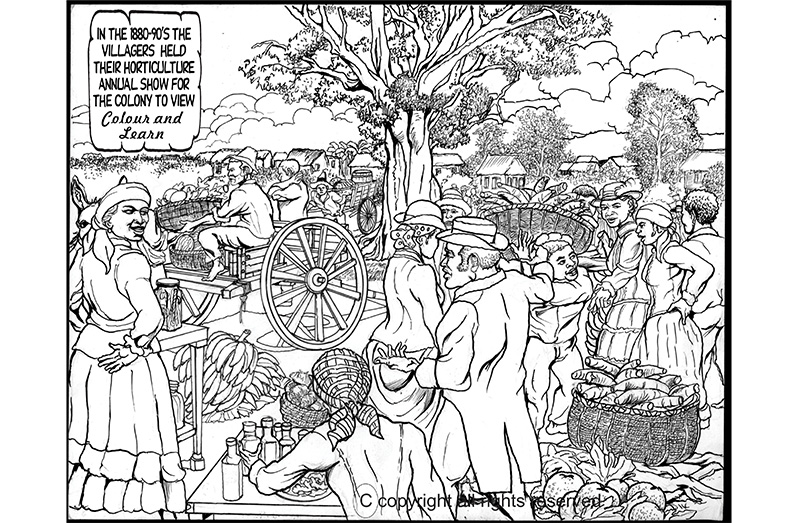- WHETHER IN YOUR IMAGINATION OR WITH THE DEBATE OF ARGUMENTS, SET TO MISGUIDE OR TO ENLIGHTEN
THE emancipation from chattel slavery, that we celebrate on the 1st of August yearly, is one such significant event that has varied realms still unexplored, that cannot be left unaccounted for and unoccupied, lest it be squatted upon by hostile vagrants and readjusted, with a new aim to suit retarding and redefining presumptions. Emancipation was followed by years of conflict to initiate the simple levels of rights and privileges, common to a new and enlightened age unfolding.

True, the plantocracy had become deities of a kind. The plantation owners possessed more power at times than the Colonial Governor; in fact, they were the powers that be. Although some level of indentured workers was imported, these people did not meet the stringent criteria that the sugar plantations required. Thus, there were always conflicts, and methods employed to strangle the new villages that the emancipated had purchased, as well as to strangle the business services of the day that the emancipated offered to the town of Port Stabroek and what the township required. And of course, the plantocracy hurried to undo the efforts of the worthy efforts of their former slaves.
The emancipated had, with the monies they saved, bought plantations that some planters had surrendered for sale. These became the first villages of the then British colony of ‘Guiana.’ Hence, they were subject to pay taxes, and this they paid for services of drainage and irrigation that were not supplied. Instead, their taxes were used to finance indentured labour. This led to hardships in the villages. But they did not cease the hostilities and schemes of the plantocracy. They also had targeted the services that the African emancipated were now offering in the township. They were the equivalent of the modern taxi service with their coaches. Before emancipation, the enslaved were producing farm crops that kept the two markets of Demerara active. The Stabroek and Mahaica Sunday markets were kept functional. Thus, it was unusual that they continued to perfect this after emancipation, but they were plotted against. The goal of the plantocracy was to destroy efforts made, and those that were successful must be undermined and replaced by sections of the very indentured, selected for their schemes. The spite that was contrived then followed the emancipated into the early 1900s and beyond.
The writers and scribes that evolved from among the emancipated did not hesitate to highlight the nature of emancipation—that it was not the act of emancipation announced by the enslaver that must be in the forefront of the celebration of the breaking of some chains of the enslaved that should be held sacred, but the struggle and sacrifices to survive, of the enslaved in the pursuit of total freedom that must be identified, venerated and explained to the innocent and the interested.
Despite the obstacles created by the plantocracy, the villagers persisted in their efforts to survive, breaking new ground. The Victoria-Belfield Horticultural and Industrial Show commenced in 1898 with success. One of the objectives of the farmers was to lobby for financial and technical support. However, the government was adamant about undermining the enlightened village efforts. One contemporary publicist made an intriguing assessment: “Local self-government has been seriously curtailed, because the villagers began to show that they understood what it meant.” See Walter Rodney’s A History of the Working People, 1881–1905.
The harassment of the African liberated took diverse forms, as efforts by the plantocracy-descendant business class were always there to institute divisions among the African freed and rules of engagement. With the curtain pulled aside for the thrust of education came a new mechanism of divide and rule, to which a local poet Mc Lawrence penned a verse that some have missed today: “Show you how to make a living / On the minimum of work, / And the maximum of bluff and make-belief, / On your father’s reputation, / And the fat of social ties, / While the law of compensation shouts a thief.”
Happy Emancipation Month.





.jpg)








